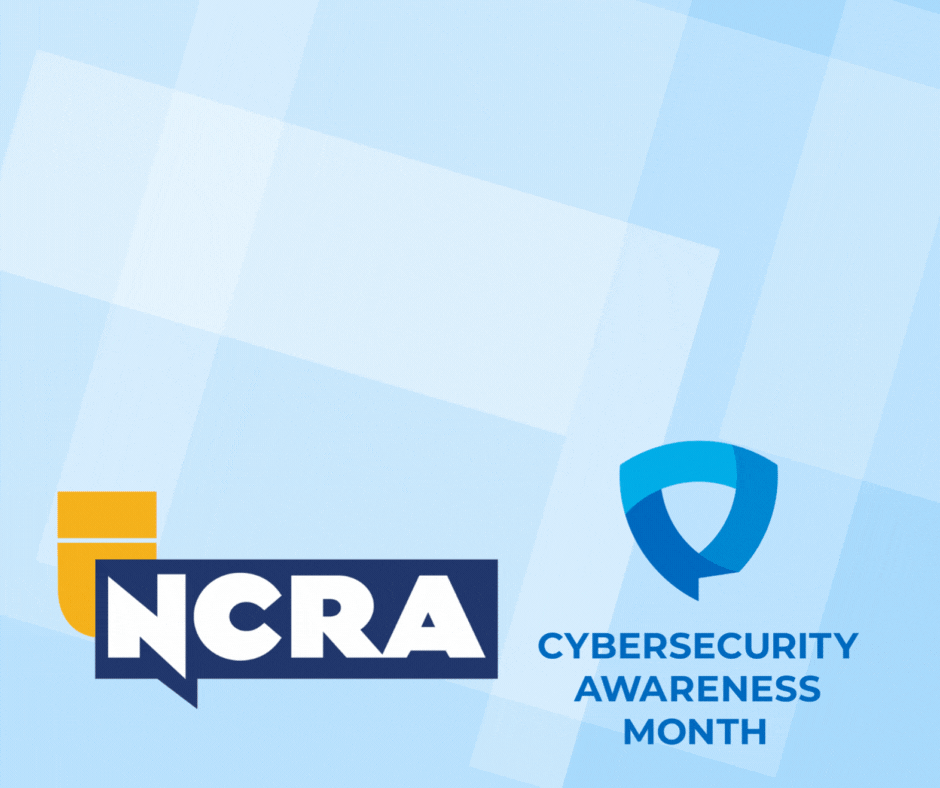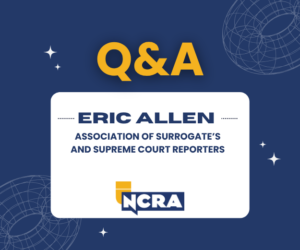By Wendy McCaffrey
I rarely get to take down testimony with a referee in the room. As a freelancer covering some intensely technical material in civil cases, I’m the one in charge of controlling the tempo and the amount of interrupting that goes on in the room if I want to get a good record and not spend the entire weekend cleaning up a transcript after misbehaving witnesses and attorneys. And as all freelancers know, I have zero authority to enforce that control. It’s up to the people in the room with me if they want to create a good record or just blow off that darned interrupting court reporter and continue speed mumbling at 300 wpm.
So when I get the chance to cover an entire trial before a judge or arbitrator, I take it. I like to let someone else do the refereeing. I keep a list of which judges back me up on slowing down or clarifying the record, so I know whether I’m going to have a good week or a bad week in court.
In July of this year, my judge for a one-week trial in Denver District Court asked the fast speakers to slow down without my even having to mention it. My favorite quote from His Honor:
“Pretend you’re from the south. Channel your inner Georgia.”
Then, in August, I met the judge who became my champion of all court reporters everywhere. In Arapahoe District Court, this judge backed me up from the first day of trial every time I asked the super-speedy attorneys to slow it down, as I could not even understand what they were trying to say. Day two of trial, after a particularly bad session of superfast back-and-forth, His Honor said (direct quote):
“THE COURT: Whether we are on FTR or have a live court reporter, ultimately, for appellate purposes, the problem is the same. For appellate purposes, a court reporter will have to transcribe what is being said, and the court of appeals will then say, ‘Why do you have so many inaudibles?’
“And sometimes they send it back to the trial court for the trial court to reconstruct. I’m telling you right now, I’m not going to reconstruct anything for you when you have the ability to control it from here on out.
“It will be a new trial, and it will be a new trial at your and your clients’ expense. When she was brought to this courtroom, she filled out a form, basically saying that she is now an officer of this court. And I will protect an officer of this court. I hope you’ve apologized and will monitor your pace.”
Ahh. If I could record this speech and play it back during depositions, I’d have a good day every single day. A fellow court reporter in Denver, Matthew Moss, RPR, said he used this line when the speed-talking got out of control:
“There is a limit to how fast I can process words and get them down. I am certified at 225 words a minute, and we’re hitting 280 and 290 very frequently, and that forces me to guess which 50 or 60 words a minute aren’t that important. That’s not a decision I feel comfortable making, so the integrity of the record is under threat when you talk that fast. That’s all I have to say. Thank you.”
Always be sure to add the “thank you.”
Wendy McCaffrey, RPR, is a freelance court reporter in Denver, Colo.




